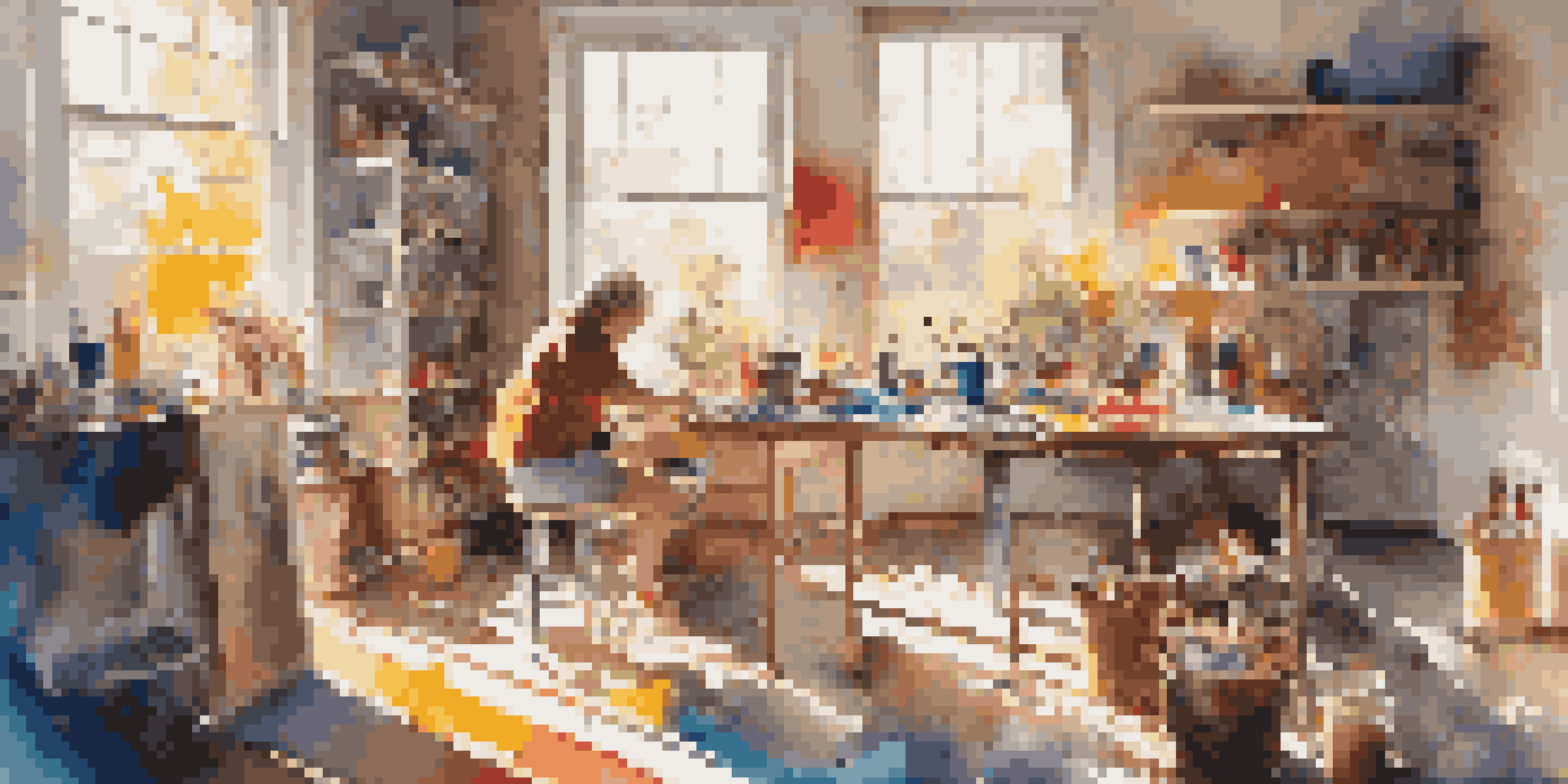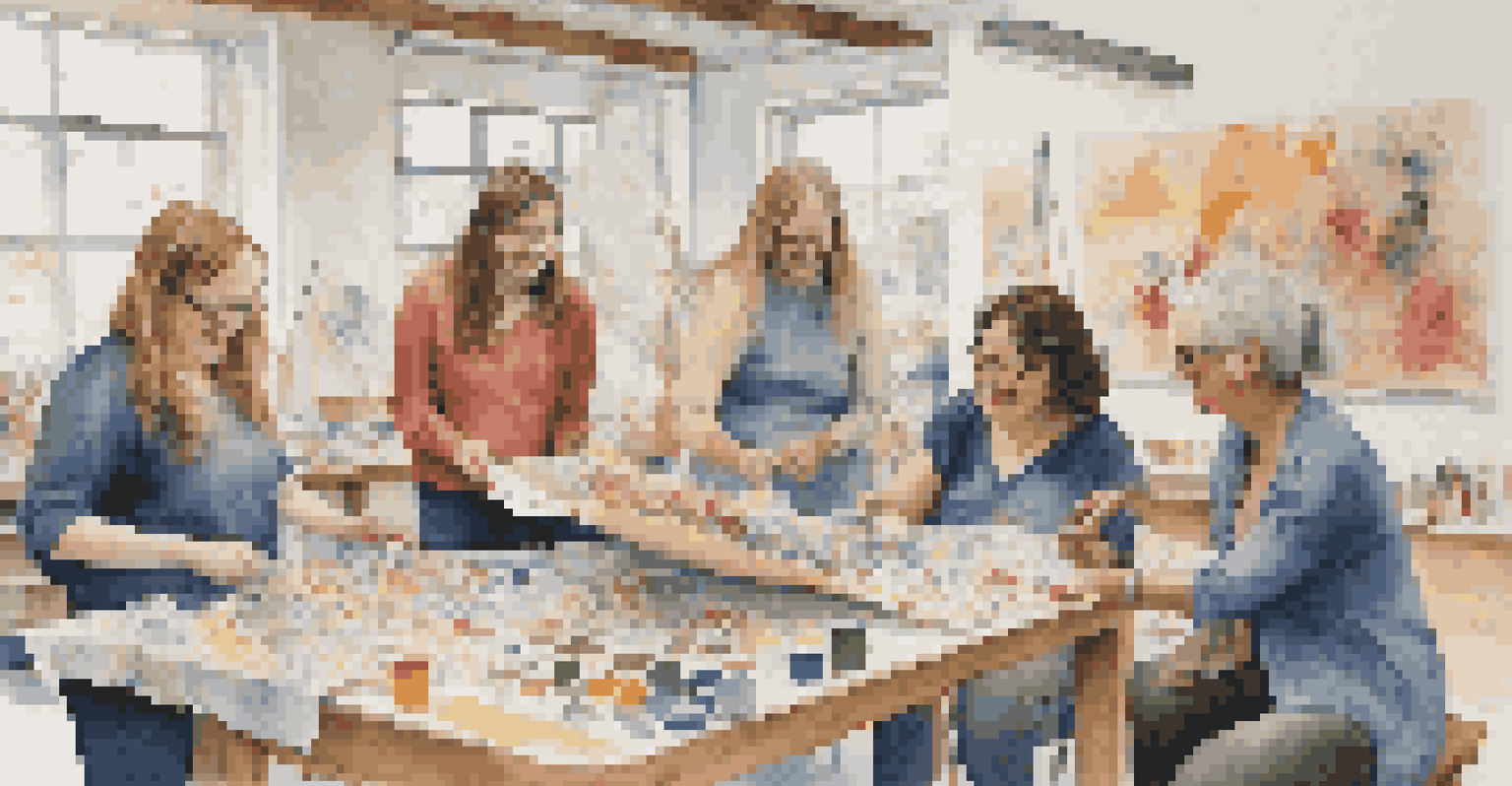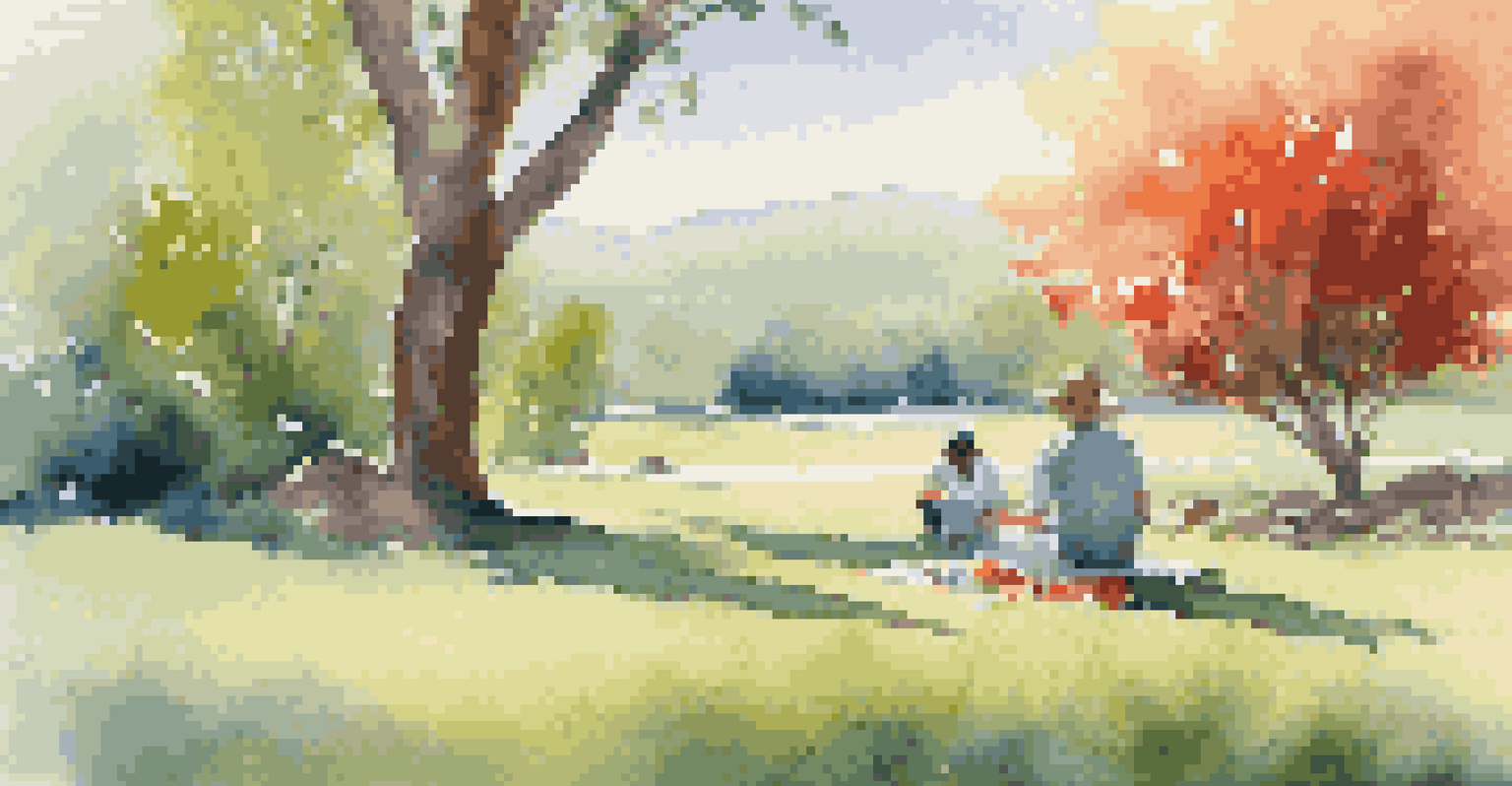The Power of Playful Reflection in Artistic Practice

Understanding Playful Reflection in Art
Playful reflection is the practice of engaging with art in a lighthearted and curious way. It encourages artists to explore their thoughts and feelings without the pressure of perfection. By approaching art playfully, creators can unlock new perspectives and insights about their work.
Every artist dips his brush in his own soul, and paints his own nature into his pictures.
This concept is rooted in the idea that creativity flourishes in a relaxed environment. Much like a child playing in a sandbox, artists can experiment with their materials and ideas freely. This playful mindset allows for mistakes to be seen as opportunities rather than failures.
Incorporating playful reflection into artistic practice not only enhances creativity but also nurtures emotional well-being. Artists who embrace this approach often find a deeper connection to their work, leading to richer artistic experiences.
The Benefits of Embracing Playfulness
Embracing playfulness in art can lead to a range of benefits, including increased innovation and reduced anxiety. When artists let go of rigid expectations, they open themselves up to unexpected discoveries. This can result in unique techniques or styles that may not have emerged otherwise.

Additionally, playful reflection can foster a sense of community among artists. Sharing playful experiences can create bonds and encourage collaboration, leading to new projects and ideas. It transforms solitary work into a shared journey of exploration and growth.
Playfulness Unlocks Creativity
Engaging with art in a playful manner allows artists to explore freely, leading to innovative techniques and insights.
Moreover, playfulness can help combat the fear of judgment that often plagues creators. When artists focus on enjoyment rather than outcomes, they become more willing to take risks, ultimately enriching their practice.
Techniques for Incorporating Playfulness
Incorporating playfulness into artistic practice can be as simple as starting with small exercises. For instance, artists can set aside time to doodle or paint without a specific goal in mind. This freedom encourages spontaneous creativity and can serve as a warm-up before diving into more serious projects.
Creativity takes courage.
Another technique is to experiment with unconventional materials or methods. Using everyday objects or mixing mediums can spark new ideas and inspire fresh approaches. This kind of exploration can lead to surprising results that enhance the artistic process.
Lastly, artists might consider collaborating with others in playful settings, such as group art sessions or workshops. These environments can stimulate creativity and provide opportunities for shared reflection, enriching the artistic experience for everyone involved.
Playful Reflection and Personal Growth
Artistic practice is not only about creating but also about personal evolution. Playful reflection can serve as a powerful tool for self-discovery. Through this practice, artists can explore their identities, emotions, and experiences, gaining valuable insights along the way.
For instance, journaling about artistic experiences or feelings can lead to a deeper understanding of one's motivations. This reflection can illuminate patterns and themes that might otherwise remain unnoticed. Such awareness can inform future work, creating a more meaningful artistic journey.
Community Grows Through Play
Playful reflection fosters connections among artists, encouraging collaboration and shared experiences that enrich their work.
Moreover, embracing playfulness can enhance resilience. When artists learn to view challenges as playful puzzles rather than obstacles, they become more adaptable in their practices. This positive mindset can have a lasting impact beyond the studio.
The Role of Environment in Playful Reflection
The environment in which artists create plays a significant role in fostering playful reflection. A space that encourages experimentation, such as a studio filled with diverse materials, can inspire creativity. Artists should aim to create an atmosphere that feels inviting and stimulating.
Additionally, the physical layout of a workspace can impact an artist's mindset. Areas designated for free exploration, with no pressure to produce 'final' work, can invite experimentation. This setup allows for a seamless transition between play and focused work, enhancing overall productivity.
Finally, incorporating elements of surprise or change in the environment can invigorate artistic practice. Whether it's rearranging the studio or introducing new tools, these changes can spark curiosity and encourage playful engagement.
Stories of Artists Embracing Playfulness
Many artists have shared their experiences of how playful reflection has transformed their practice. For example, a painter might recount a time when they allowed themselves to paint without a plan, resulting in an unexpected masterpiece. These stories highlight the magic that can happen when artists let go of constraints.
Moreover, collaborative art projects often yield tales of joy and discovery. Artists who come together to create in a playful atmosphere frequently report breakthroughs that wouldn't have occurred in isolation. These shared experiences underscore the community aspect of playful reflection.
Environment Influences Artistic Play
A supportive and stimulating environment is essential for nurturing playful reflection and creativity in artistic practice.
These anecdotes serve as reminders that art is as much about the process as it is about the final product. By embracing playfulness, artists can find joy in their work and inspire others to do the same.
Conclusion: The Lasting Impact of Playful Reflection
The power of playful reflection in artistic practice cannot be underestimated. It fosters creativity, nurtures personal growth, and builds community among artists. By incorporating playfulness into their work, artists can unlock new dimensions of their creativity.
As we conclude, it’s essential to remember that art should be a source of joy and exploration. Whether you’re a seasoned artist or just starting, embracing a playful mindset can lead to profound experiences and outcomes. It’s about celebrating the journey as much as the destination.

In the end, playful reflection is not just a technique; it's a philosophy that can enrich the artistic spirit. So, grab your materials, let go of expectations, and dive into the playful world of artistic exploration!